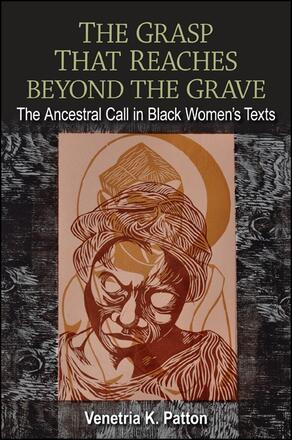
The Grasp That Reaches beyond the Grave
The Ancestral Call in Black Women's Texts
Alternative formats available from:
Explores Black women writers’ treatment of the ancestor figure.
Description
The Grasp That Reaches beyond the Grave investigates the treatment of the ancestor figure in Toni Cade Bambara's The Salt Eaters, Paule Marshall's Praisesong for the Widow, Phyllis Alesia Perry's Stigmata and A Sunday in June, Toni Morrison's Beloved, Tananarive Due's The Between, and Julie Dash's film, Daughters of the Dust in order to understand how they draw on African cosmology and the interrelationship of ancestors, elders, and children to promote healing within the African American community. Venetria K. Patton suggests that the experience of slavery with its concomitant view of black women as "natally dead" has impacted African American women writers' emphasis on elders and ancestors as they seek means to counteract notions of black women as somehow disconnected from the progeny of their wombs. This misperception is in part addressed via a rich kinship system, which includes the living and the dead. Patton notes an uncanny connection between depictions of elder, ancestor, and child figures in these texts and Kongo cosmology. These references suggest that these works are examples of Africanisms or African retentions, which continue to impact African American culture.
Venetria K. Patton is Associate Professor of English and Director of the African American Studies and Research Center at Purdue University. She is the author of Women in Chains: The Legacy of Slavery in Black Women's Fiction, also published by SUNY Press, and coeditor (with Maureen Honey) of Double-Take: A Revisionist Harlem Renaissance Anthology.
Reviews
"Patton makes a compelling argument about the significance of female relationships in African American culture as illustrated through stories that focus on mothers and daughters and on other female characters who fulfill the mother role, especially in connection to historical family figures … Though several of the novels she examines have been widely analyzed, Patton provides fresh insights into the characters and potential causes for their actions." — CHOICE
"Patton's book examines systematically the living role of the elder and the ancestor in literary works by African American women. Bringing these roles and relationships into critical literary discourse is revelatory and real. Patton's buttressing sources include not only those of the literary scholar, but also well-known works by scholars of African and African American art and religion. This is a wonderful and long overdue contribution." — Joanne M. Braxton, Director, Middle Passage Project, College of William and Mary